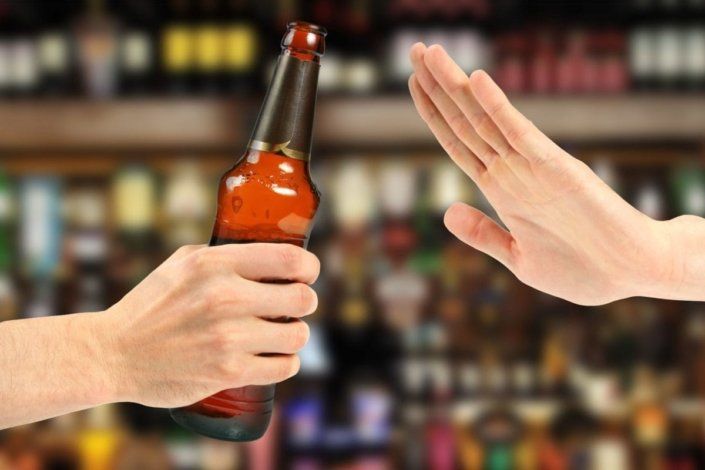Naltrexone for Alcoholism
Naltrexone is really a medicine that’s used to take care of alcoholism (addition to alcohol). It minimises your desire to have alcohol. It comes beneath the brands ReVia or Vivitrol. Once you quit drinking, naltrexone can help you stay sober for a long period. This medicine isn’t a whole cure for alcoholism. Nonetheless it might help you stop drinking when you get any treatments your doctor recommends.
Alcoholism is really a chronic disease. Which means that it lasts for a long period or it causes problems over and over. The primary treatment for alcoholism would be to stop drinking alcohol. This is difficult. Most people that are alcoholics still feel a solid desire for alcohol even with they stop drinking. Naltrexone might help.
Way to improved health
So how exactly does naltrexone work?
By using alcohol and narcotics, elements of your brain make one feel pleasure and intoxication. Naltrexone blocks these elements of the mind. When these areas are blocked, you are feeling less need to consume alcohol. You don’t have the “high” sensation which makes you intend to drink. This can help you stop drinking easier. Disulfiram (brand Antabuse) is another medicine that’s sometimes used to take care of alcoholism. But unlike disulfiram, naltrexone will not make one feel sick if you consume alcohol while taking it.
Just how long am i going to take naltrexone?
You as well as your doctor will determine how long you need to take naltrexone. A lot of people take the medicine for 12 weeks or even more. Researchers have discovered that taking it for longer than a few months is the most reliable treatment. Make sure to take naltrexone as your physician prescribes it. Don’t take extra pills, don’t skip pills, and don’t stop taking the pills and soon you speak to your doctor.
For individuals who don’t desire to take a pill each day, naltrexone is also obtainable in a shot. You obtain the shot monthly. It gets the same effect because the pill form.
AM I GOING TO need other treatments for alcoholism?
Like a great many other diseases, alcoholism affects your body and mentally. Both the body and your mind need to be treated. Along with medicine, your physician may recommend psychosocial treatments. These treatments might help you change your behavior and deal with your problems without needing alcohol. Types of psychosocial treatments include:
- Alcoholics Anonymous or other support conferences.
- Counseling.
- Family therapy.
- Group therapy.
- Addiction cure.
- Medical therapy.
There could be special centers locally that offer this sort of treatment. Your physician can refer one to the psychosocial treatment that’s right for you.
Facts to consider
Like any medicine, naltrexone could cause side effects. Nausea may be the most typical one. Other unwanted effects include:
- headache
- diarrhea
- constipation
- dizziness
- nervousness
- insomnia
- drowsiness
- anxiety
In the event that you get these side effects, tell your physician. She or he may change your treatment or suggest methods for you to deal with the medial side effects.
Call your physician right away in the event that you experience the following symptoms:
- Blurry vision.
- Confusion.
- Hallucinations (hearing or seeing items that aren’t there).
- Severe vomiting or diarrhea.
- Excessive fatigue.
- Bleeding or bruising.
- Lack of appetite
- Pain in top of the right section of your stomach that lasts lots of days.
- Light-colored bowel motions.
- Dark urine.
- Yellowing of your skin or eyes
Speak to your doctor when you have a brief history of depression. Naltrexone could cause liver damage when used large doses. Tell your physician when you have had hepatitis or liver disease.
What must i know prior to starting treatment with naltrexone?
Naltrexone blocks the mind areas where narcotics and alcohol work. Which means you should be careful never to take any narcotics when you are taking naltrexone. Included in these are codeine, morphine, or heroin. Usually do not take any cough medicine with codeine inside it when you are taking naltrexone. Naltrexone could cause or worsen withdrawal symptoms in individuals who take narcotics. You need to stop taking all narcotics 7 to 10 days before you begin taking naltrexone.
You shouldn’t take naltrexone in the event that you’re pregnant. Discuss birth control options together with your doctor. It’s as yet not known if naltrexone switches into breast milk. Usually do not breastfeed when you’re taking it.
Questions to ask your physician
- I wish to stop drinking. Is naltrexone an excellent option for me personally?
- What unwanted effects may i expect?
- MAY I still consume alcohol when I’m taking it?
- AM I GOING TO still get drunk easily consume alcohol while I’m taking it?
- What goes on easily take street drugs while I’m taking it?
